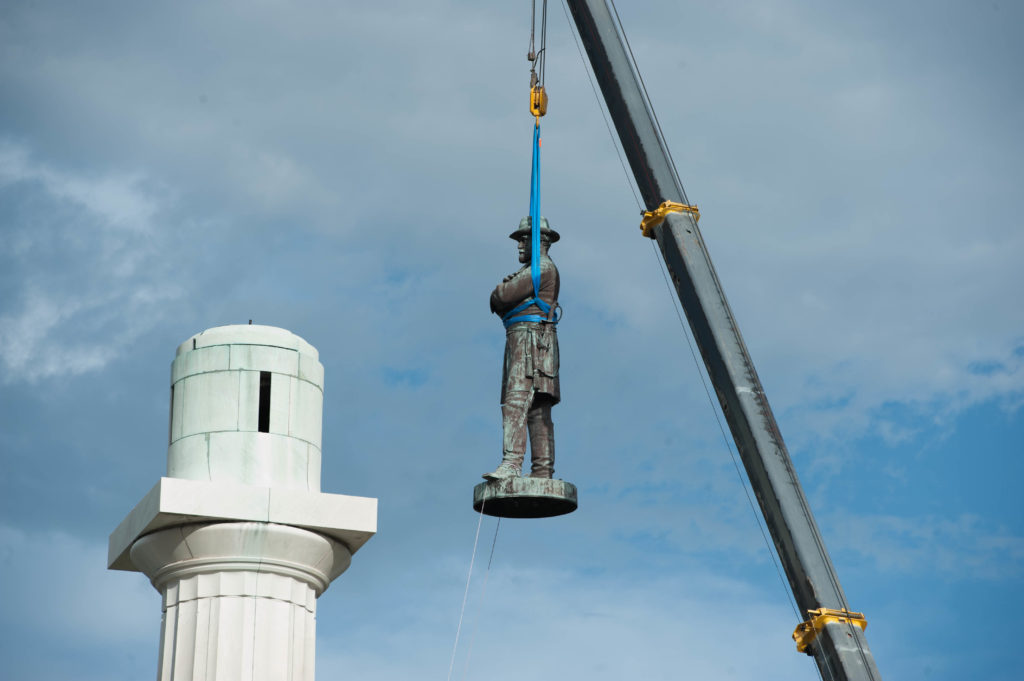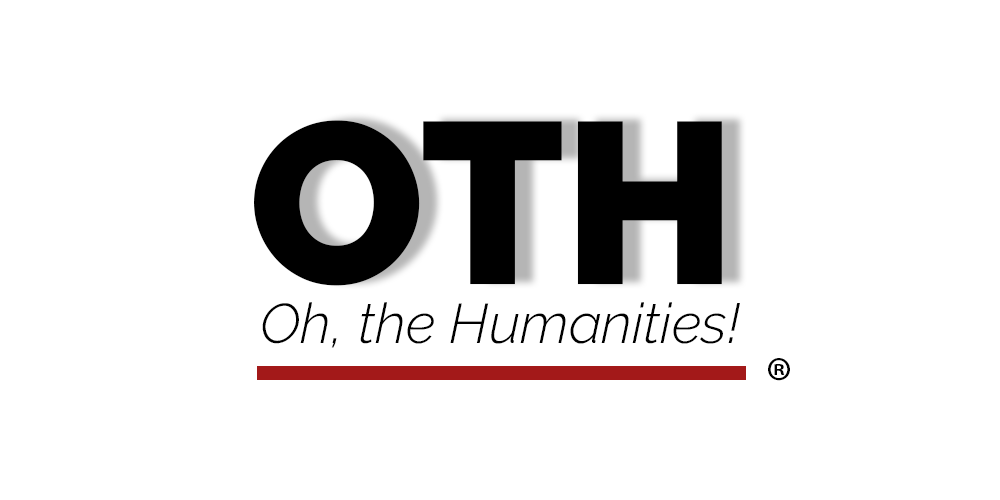A Note from OTH’s Editor, Chris Plattsmier
This interview originally appeared in a 2017 issue of Oh, the Humanities! (previously published by ACLS Humanities E-Book). Talking to Mr. Dotson not only was a professional pleasure, but a personal one as well for me. I was born and raised close to Louisiana State University in Baton Rouge, LA, and as I have grown my professional career in scholarly publishing and communications, the work of LSU press continually inspires me to learn, appreciate, and share the history and culture of my home state.
The interview has been edited to reflect OTH’s current publisher.
Has the press noticed an increase in interest in titles focused on the Civil War, Race, and Southern History considering the current political landscape?
A: Interest in our backlist of classics in southern history seems to remain constant. That being said, given the current debate over Confederate iconography and the growing focus on questions about what the Civil War was fought for, I would not be at all surprised to see an increase in attention given to these older but incredibly important books on our list. LSU Press has, since its inception over 80 years ago, informed the debate over the meaning and memory of the Civil War, and it continues to be a central and needed voice in this seemingly unending discussion.
Q: When browsing the different series you have worked on, “Conflicting Worlds: New Dimensions of the American Civil War”stood out to me because of the description stating, “This LSU Press multidisciplinary series is a catalyst for the publication of original works that explore the American Civil War era in the most creative and expansive ways possible”…can you speak to the “creative and expansive ways” emphasized in this series?
A: Books in our Conflicting Worlds series, which is curated by its series editor T. Michael Parrish, typically examine events that transpired away from the battlefield, answering questions that help reveal the complexity and nuances of the conflict. In one sense, authors in the series answer questions that no one thought to ask.
For example, who knew that the Confederacy had an active patent office? The prevailing historiography depicts the South in the Civil War era as technologically backward compared to the North, and yet hundreds of southerners submitted applications to the Confederacy’s agency to secure patents on their intellectual property, which ranged from a “machine for operating submarine batteries,” to a “steam plough,” to a “combined knapsack and tent,” to an “instrument for sighting cannon.” Confederate Invention: The Story of the Confederate States Patent Office and Its Inventors, by H. Jackson Knight, tells this story, which up until its publication had been almost forgotten.
Q: It is easy to point out the importance to scholars and students that LSU’s titles hold, but what role (if any) does scholarship on such divisive socio-political issues have in public discourse?
A: In our strange, new, almost Orwellian world, of “alternative facts” and accusations of “fake news,” I believe that citizens are in grave danger of losing their grasp on long-established and accepted norms for agreeing in what is the truth. History is very much a debate, but it is also a realm with accepted rules and truths. One cannot make unverifiable claims or unsubstantiated attacks and get away with it in academic history. LSU Press’s books, especially those dealing with civil rights, the Civil War, and American culture, are a repository of information and opinions that represent the gold standard of scholarly analysis. They have undergone a rigorous peer review process, been expertly prepared and presented, and upon publication have been positively reviewed in the nation’s leading academic journals. Citizens searching for reliable explanations on issues of concern can really do no better than to reach for a university press publication on the topic.

Q: To follow up, have you been approached or are you pursuing any ideas or proposals for titles covering some of the contemporary controversies plaguing the South (and the rest of the country for that matter), such as the removal of Confederate monuments, voting disenfranchisement, police violence, etc.?
A: Although much of the nation might not be aware of it, historians have been analyzing and debating these issues for decades. Indeed, as soon as the current firestorm over Confederate monuments erupted, we saw a spike in interest in our 2004 book Still Fighting the Civil War: The American South and Southern History, by David Goldfield, which examines the ongoing debate over race, racism, and the meaning and legacy of the Civil War in the South. Given the abundance of work by scholars on this topic, I would be shocked if other university presses were not experiencing the same wave of interest.
History is very much a debate, but it is also a realm with accepted rules and truths. One cannot make unverifiable claims or unsubstantiated attacks and get away with it in academic history.
Q: It may be hard to just pick one, but what title from LSU Press would you recommend to scholars interested in race and civil rights issues? What about for a citizen just interested in learning more about these issues?
A: For scholars, I recommend Defying Disfranchisement: Black Voting Rights Activism in the Jim Crow South, 1890-1908, by R. Volney Riser. In his study, Riser examines African American challenges to the legal removal of their voting rights in the immediate aftermath of southern states implementing new constitutions expressly to end black voting. This early resistance might surprise some historians, since most date the battles over disfranchisement later in the process and are unaware of this first wave of resistance.
For general readers, I recommend A More Noble Cause: A. P. Tureaud and the Struggle for Civil Rights in Louisiana, by Alexander P. Tureaud, Jr. and Rachel L. Emanuel. The book tells the story of A. P. Tureaud’s lifelong battle for racial justice in Jim Crow-era Louisiana. During a career that spanned more than forty years, Tureaud was at times the only regularly practicing black attorney in the state. From his base in New Orleans, the civil rights pioneer fought successfully to obtain equal pay for Louisiana’s black teachers, to desegregate public accommodations, schools, and buses, and for voting rights of qualified black residents. His work, along with that of dozens of other African American lawyers, formed part of a larger legal battle that eventually overturned Plessy v. Ferguson, the 1896 U.S. Supreme Court decision that legalized racial segregation.
Q: Do you feel the LSU Press has a responsibility to publish the work of minority scholars in fields that directly relate to their lives and experiences or where their voices are underrepresented? Does it simply come down to quality and relevance of the scholarship?
A: Yes, absolutely, and I am proud to say that we have done so many times. That being said, our book manuscripts undergo an arduous review process that does not take into account anything other than excellence in analysis and an extremely high-level of expertise in the subject area.
Q: Louisiana, like many other states, has been in a bind trying to sort out its budget and ultimately the impact has been felt by higher education institutions across the states, although LSU and other schools in the state so far have staved off cuts in 2017. What is the biggest strain for the press while operating in such a tenuous economic environment?
A: First, I have to point out that LSU Press has always received incredible support from LSU. And in spite of the tragic and painful cuts to higher education in the state, the university and the press are ably fulfilling their missions. I expect that everyone at LSU Press would answer your question differently, so I am going to do so from an acquisitions perspective.
The main issue for my department is that while the press is thriving, because of well-publicized cuts made to higher education a few years ago, I fear that the perception remains among some that we are in peril. When authors are contemplating where to submit their manuscripts, some may therefore unfairly cross LSU Press off their list of potential publishers. I do not believe that happens with much frequency, but I will never know what important book the press was not given a chance to consider publishing because of a false impression about where we stand.
Editor’s note: LSU Press made it through the budget cuts discussed between Mr. Dotson and myself in 2017. However, like many university presses and publishers, COVID has severely impacted their bottom line. Consider supporting LSU Press or your local university press by purchasing a title, donating, or connecting with the press to review your options.
